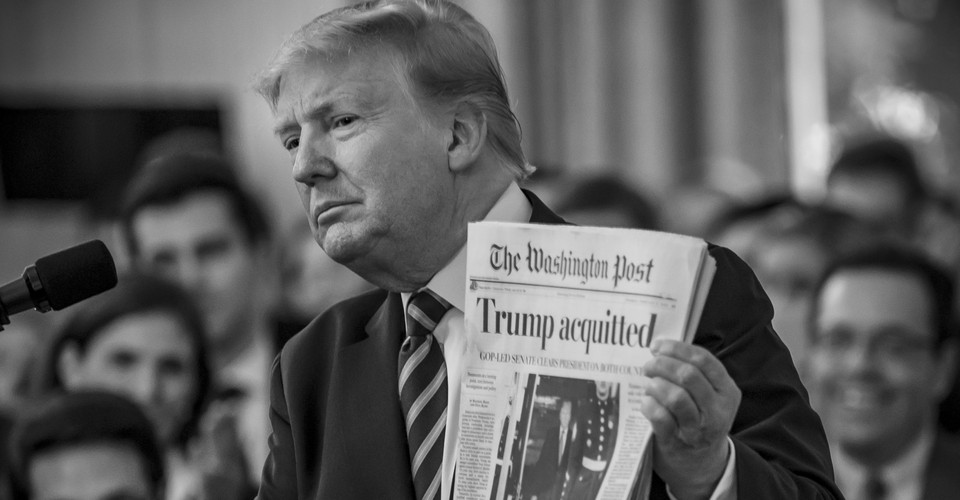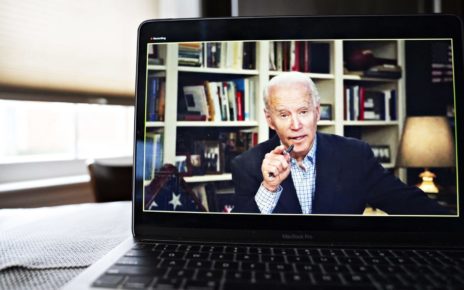Two telling clues reveal these suits to be frivolous. First, all three lawsuits target opinion pieces—not news reports asserting factual claims. While in theory an opinion piece could meet the Supreme Court’s high bar for defamation of a public figure, in practice this is very hard to imagine. Second, the statements alleged to be defamatory in the three suits haven’t been proved false—rather, they’ve been vindicated. The Times piece said Russia helped Trump in 2016 because it anticipated pro-Russia policies if Trump won. The Post piece said Trump invited foreign election interference in 2020. The CNN piece said Trump has deliberately not taken steps to prevent the solicitation of foreign election interference in 2020. All of these statements have been corroborated—the first by Robert Mueller’s report, the second by Trump’s own words, and the third by Trump’s own (non)actions.
But even if these lawsuits are unlikely to succeed, they can nevertheless do great harm. As Trump runs for reelection, the campaign may use these suits to boast that Trump is fighting the media, or what he calls “fake news.” The intention, it seems, is to scare away media outlets from publishing opinion pieces that use particularly critical words to describe his relationship with Russia. These tactics likely won’t work against the Times, the Post, or CNN. But think of smaller, local media outlets—whether newspapers, radio stations, TV news programs, or websites—that already are struggling to stay afloat as hundreds of other media outlets go under nationwide. For them, the prospect of having to litigate a defamation suit against the behemoth of the Trump campaign is intimidating—perhaps even prohibitively intimidating. An editor or lawyer at those outlets may pause on a particular adjective used to describe Trump’s relationship to Russia, think about the suits against the Times, the Post, and CNN, and then think really, really hard about softening that language. Going one step further, an individual writer may pause before even drafting words critical of Trump and his family—a likely effect of a November 2016 lawsuit filed by Melania Trump against a 70-year-old political blogger who writes from his Maryland townhouse.
Dan Rather and Elliot Kirschner: Why a free press matters
That hesitation alone would amount to a severe blow to the free press that Americans rightly cherish and that the First Amendment protects. But Trump’s project seems even more malevolent. As he seeks reelection in the face of dismal approval ratings and widespread unpopularity, he’s given every indication that he will try to weaponize the organs of the government to help him. Trump already tried to exploit American military aid and diplomacy in order to damage a political rival via Ukraine. He has already asked his attorney general to investigate the very investigators who identified and prosecuted criminal activity by high-ranking figures associated with his 2016 campaign. And he already removed and replaced his acting director of national intelligence when a top official working for him briefed Congress honestly on 2020 election interference, installing a politically minded sycophant instead.
Source: The Danger of the Trump Campaign’s Defamation Lawsuits – The Atlantic





